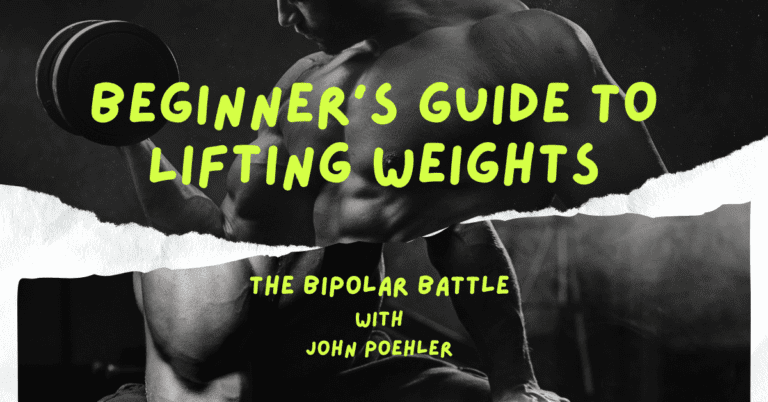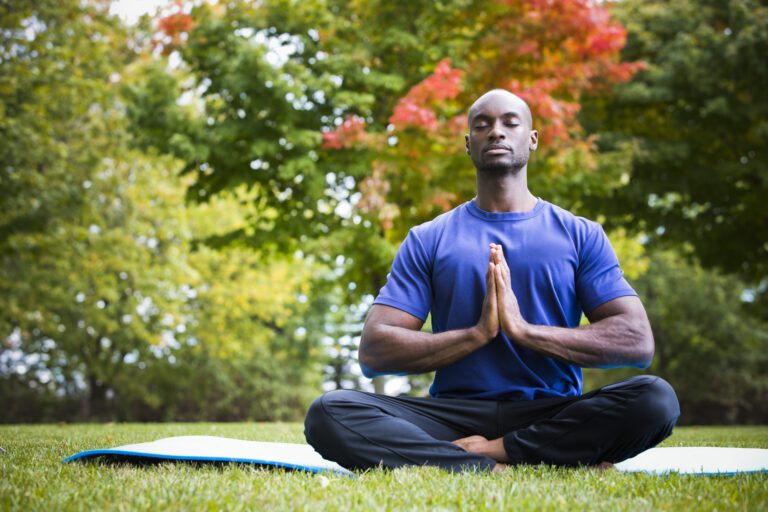Exercise Can Improve Your Quality Of Life
Bipolar disorder is a chemical illness of the brain. Therefore, medication management should be the foundation of your overall wellness plan. Exercise plays a vital role in this foundation.
I use the word “foundation” because all of the coping skills you utilize on a daily basis are the building blocks for your overall treatment plan.
Everyone who is diagnosed with bipolar disorder is unique in how their illness presents itself clinically. Yes, there are diagnostic criteria that are similar across the board. However, symptomology is as unique as each individual.
Wellness Plan
A wellness plan is a plan you follow daily to enhance your overall quality of life. As I mentioned, medication management should be the foundation of this wellness plan.
The next level up should be exercise. When I speak of exercise, you should find something to increase your heart rate daily and simply get moving.
Study after study shows how exercise not only improves mood but also cardiovascular endurance, sleep, and regulation of appetite. In addition, it reduces blood pressure and helps to naturally regulate blood sugar levels.
Aerobic exercise is one of the best natural ways to help boost your mood. When you exercise, your body is flooded with endorphins and other good mood-enhancing hormones. Even going for a brisk walk for 20 minutes each day provides these positive benefits.
Exercise Plan
The important thing about exercise is to pick something that you like to do. This way, you will have a better chance of adhering to your workout program. If you do not like to run, then try walking. Maybe biking is a better fit for you. Some individuals enjoy swimming because it is low-impact, or perhaps an elliptical machine.
Starting out, your goal should be to get active for at least 20 minutes during the course of a day. You may have to break it up until a couple of sessions throughout the day – and that is okay. As time moves forward, and you maintain consistency in your workout schedule, it will get easier.
In managing my bipolar disorder, my primary goal is to improve my quality of life while successfully treating my illness. Exercise helps do this by making me feel better, improving my mood, and helping me support healthy mood regulation.
If you are new to exercising, or if it has been a while, make sure to check with your doctor before starting anything new.
An Example From My Own Experience
One of my favorite activities is jogging. A few years ago, I sustained a back injury that sidelined my training. For a few months, I spent a large amount of time strengthening my back and core and working with a physical therapist.
During that time, I performed a couple of sets composed of specific physical therapy exercises each day to help improve my back. I completed a 20-minute workout Monday, Wednesday, and Friday each week. On Tuesday and Thursday, I performed light resistance training. Lastly, I jogged for a minute, walked for a minute, and repeated until 20 minutes went by.
The aforementioned workout was specific to my back issues. If I did not have those back issues, I would have adopted a different workout. That is why I stress the importance of chatting with your doctor before starting a workout program.
The Pyramid
It may help you to look at your overall treatment plan as a pyramid. The foundation of the pyramid supports everything else above it. In this case, the foundation of the pyramid is a metaphor for the medical model of treatment – medication management and therapy.
The next level up from the foundation is exercise. I strongly believe, and it has been my own personal experience too, that following an exercise program each day is the next best thing after medication.
From my own experience, I suggest starting an exercise program before you are in the midst of a depressive episode. Once you are exercising on a daily basis, it is easier to maintain consistency with your workout program once a mood episode shows its ugly face.
After exercise, the next level up is comprised of coping skills and strategies. Just remember, everyone is different when it comes to the strategies that work for them and their situation. The best thing you can do is experiment and see what is most helpful. Keep a journal so you can track what works and what does not.
The important take-home message here is to find something that works for you, whether it be running, walking, yoga, weightlifting, swimming, or anything in-between.
Comment below with coping strategies that help you.







